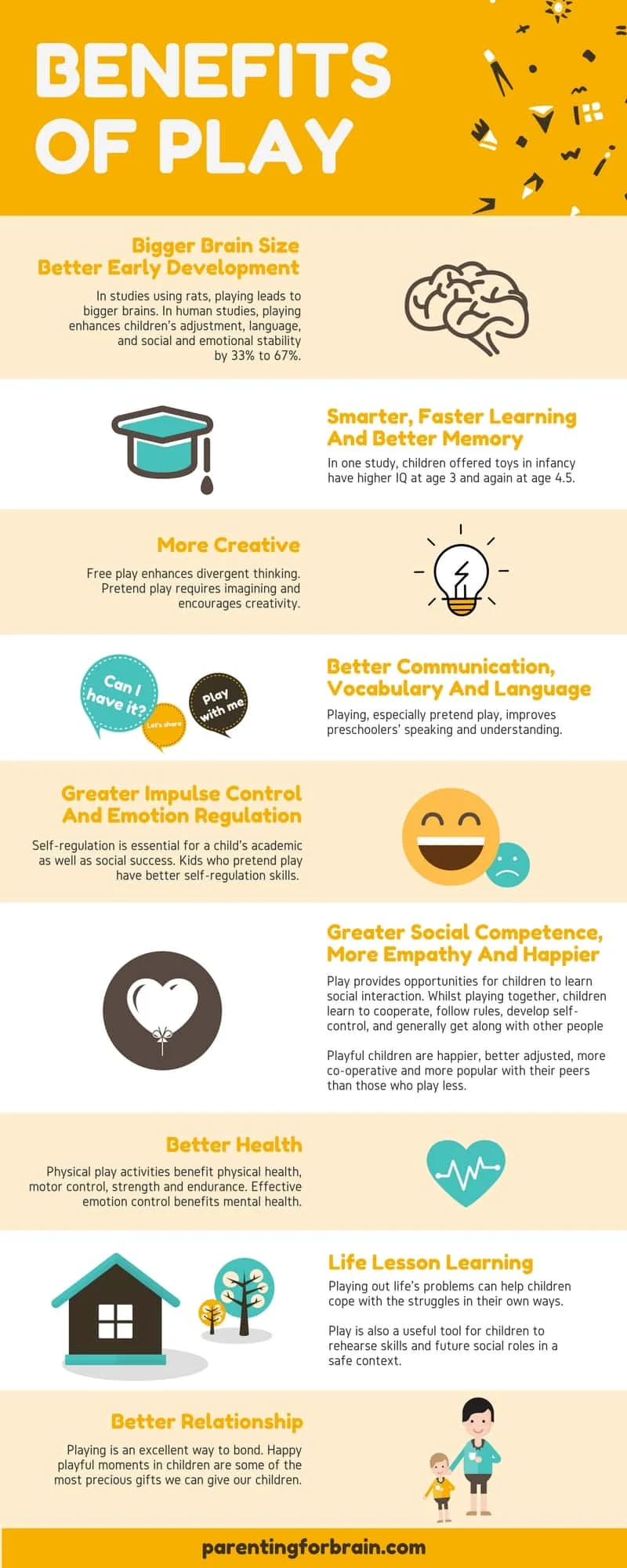
Playtime: Not Just for Fun!
Playtime sometimes gets a bad reputation! Some might dismiss it as being “just for fun,” but play is a critical activity for children of all ages as they grow and develop. For a child, play is a way to explore and learn, develop new skills, and connect with others. Through self-directed play, children can follow their interests, explore the unknown, link outcomes with choices, conquer their fears, and make friends.
Play also has important links to developing key skills that serve as a foundation for life-long success, including critical thinking, communication, problem solving, and collaboration.
“You can discover more about a person in an hour of play than in a year of conversation.” – – Plato
Did you know that playtime can make a positive impact on a child’s health? Check out this video!
The benefits of play
While the benefits of play are innumerable — play helps children develop cognitively, physically, socially, and emotionally — there is more to play than fun and games.
But how do children learn through play? Well, it’s simple. Play allows children the chance to emulate what they see and practice skills. It gives them an outlet for creativity and experimentation, and play helps them learn how to interact and communicate with others.
Cognitive benefits
Play promotes healthy development and critical thinking skills. It reinforces memory, helps children understand cause and effect, and helps children explore the world — and their role in it.
Play also inspires children to pretend, create, and imagine. Creative, open-ended play helps children conceptualize, brainstorm, and exercise critical thinking skills.
In early childhood, play can stimulate brain development and creativity, improve communication and language development, promote impulse control and self-regulation, and much more. Check out this informative infographic from Parenting for Brain:

Physical benefits
Physically, play benefits children in a few ways, namely in the development of their fine and gross motor skills. Play benefits motor development by encouraging movement and the understanding of spatial relations, promoting motor planning skills, and supporting balance and dexterity. It also supports gross motor skills, such as energy, stamina, flexibility, and body awareness.
Examples of physical play include running, jumping, swimming, block building, dancing, riding bikes, and climbing trees. (When you’re providing opportunities for these types of activities, remember key safety precautions — from bike helmets to pool supervision.)
Social benefits
Play is also important for social development because it helps children learn how to interact with others.
Through play, children develop an understanding of social expectations and rules, and play provides opportunities to share thoughts and ideas, to listen, and to compromise.
Play is also a great way for young children from different backgrounds to engage with others, sharing joyful experiences that build trust. By encouraging children to play with others from different backgrounds, we develop our children’s social skills, tolerance, and instill in them a sense of understanding and enjoyment of other cultures. Hear Beth from the Boston Children’s Museum further discuss the social benefits of playing with children from different diverse groups:
Emotional benefits
Additionally, play helps children understand and process their emotions. When a child loses a game, for example, they learn to process sadness, anger, and grief. Playing also helps build confidence and encourages the development of their identity and self-esteem. Through play, children can find endless ways to satisfy their curiosity. Working out difficult puzzles or games helps a child learn both patience and perseverance, and builds a child’s sense of accomplishment and confidence. Social play promotes children’s negotiation skills and supports emotional development. So encourage your children to play and get them started in the right direction down that path to success.
Where to play in Grand Rapids this summer
- Frederik Meijer Gardens and Sculpture Park
- John Ball Zoo
- Grand Rapids Art Museum (every Tuesday is FREE!)
- Grand Rapids Public Museum

